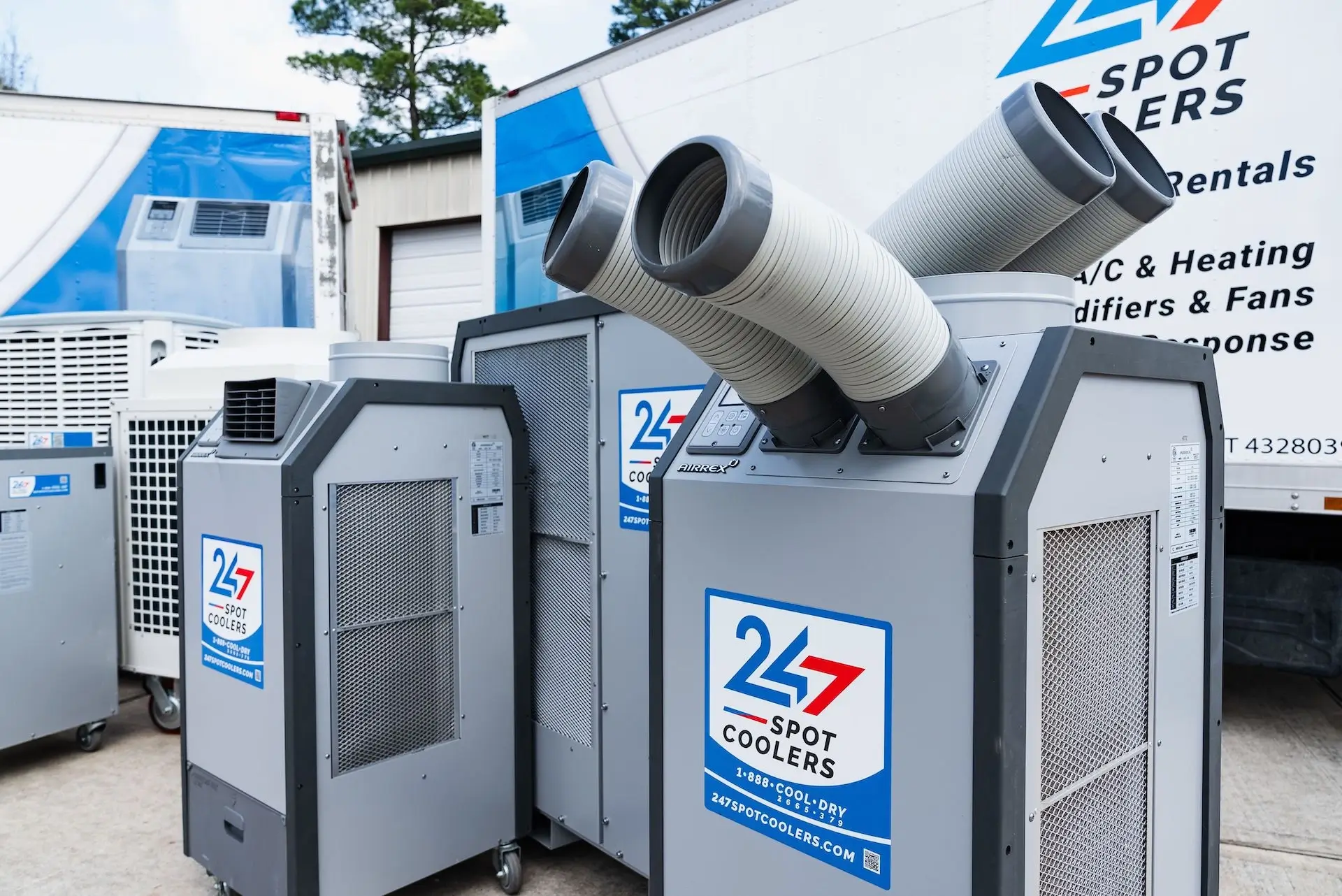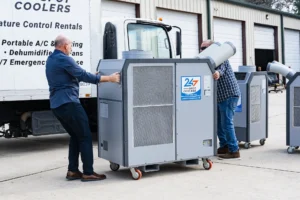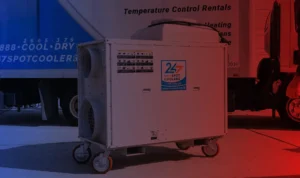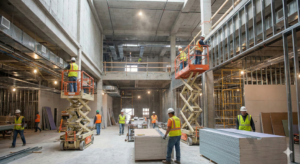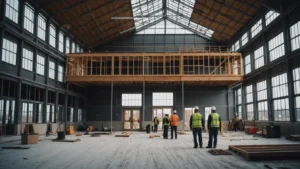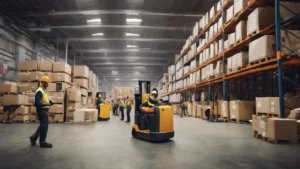Portable air conditioners (often called spot coolers) are versatile, efficient solutions for cooling individual spaces without the need for permanent installations. Whether you’re dealing with a server room overheating emergency, planning an outdoor event, or supplementing an overworked HVAC system, portable air conditioners can help provide targeted cooling when it’s most needed.
This blog post delves into how portable air conditioners work, scenarios where they’re most beneficial, and key features to consider when selecting one.
How Portable Air Conditioners Work
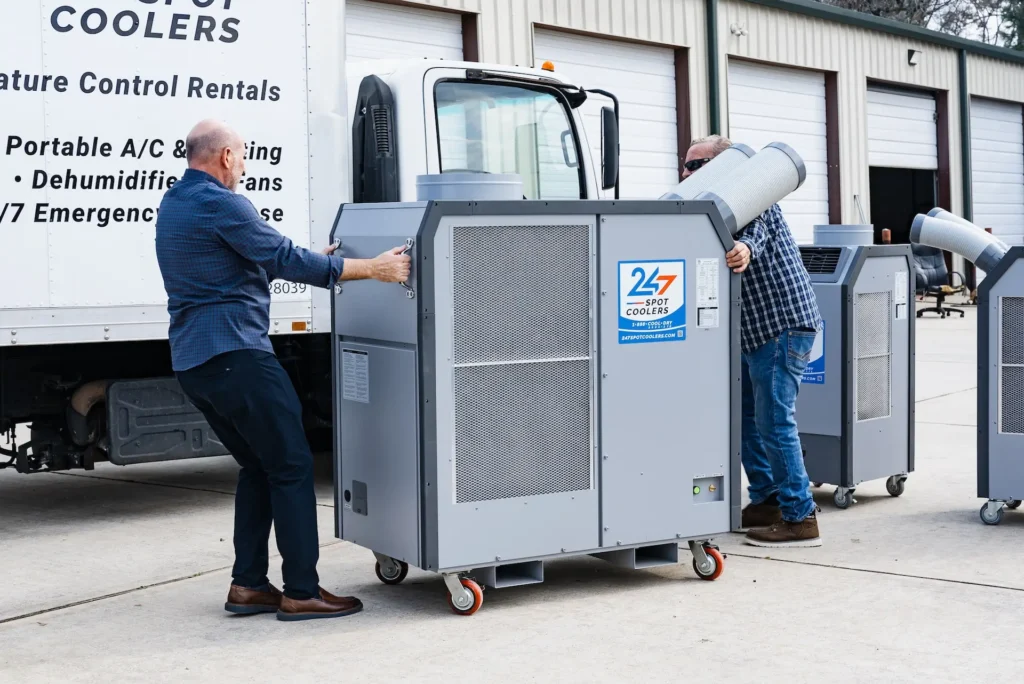
Portable air conditioners are compact, freestanding units designed to deliver cooling to specific areas. Most models use an air-cooled or water-cooled system to remove heat from the air and discharge cold air into the space. Here’s a brief breakdown:
- Heat Removal: Portable air conditioners draw in warm air and pass it over coils containing a refrigerant, which absorbs the heat.
- Condensation Management: As the warm air is cooled, moisture is condensed and collected or vented out.
- Air Ventilation: The cooled air is distributed back into the room while excess heat is vented through ducts or windows.
This focused cooling mechanism makes portable air conditioners ideal for small, defined spaces like server rooms, offices, or temporary work areas.
When to Use a Portable Air Conditioner
Portable air conditioners are versatile, but they excel in specific scenarios:
- Emergency AC Failures
When your central HVAC system unexpectedly breaks down, portable air conditioners can keep your space operational and comfortable while repairs are underway. - Heat-Sensitive Equipment
Spaces like server rooms and data centers rely on precise temperature control to protect sensitive electronics and prevent overheating. Portable air conditioners can provide targeted cooling for these high-stakes environments. - Event Cooling
Hosting an outdoor party or setting up a tent for a wedding? Portable AC units can ensure guests stay comfortable, even in unpredictable weather. - Workplace Comfort
Supplementing your existing HVAC system with portable ACs can help maintain comfortable conditions for employees in offices, schools, warehouses, or industrial spaces.
What to Look For in a Portable Air Conditioner
Choosing the right portable air conditioner depends on your specific needs and space requirements. Here are some key factors to keep in mind:
- Cooling Capacity
Measure the size of the space you need to cool first. Units are rated in BTUs (British Thermal Units)—a larger space will require higher BTUs for effective cooling. - Portability Features
Check for wheels, handles, or lightweight designs that make it easy to move the unit around. - Ventilation Options
Determine whether it’s feasible to vent the unit outside. Some units, like water-cooled models, don’t require external ventilation. - Energy Efficiency
Energy-efficient models can save costs over the long term, particularly for extended usage. Look for features like programmable timers or Eco modes. - Noise Levels
If the unit will be used in an office, hospital, or event, ensure the model you select operates quietly. - Customization
Some portable air conditioners offer advanced features, such as adjustable airflow direction, temperature control, or air purification options.
Types of Portable Air Conditioners
It’s also helpful to understand the different types of portable AC units available:
- Air-Cooled Spot Coolers
These are the most common portable systems for indoor spaces like offices and server rooms. They vent heat outdoors through ducts or windows. - Water-Cooled Portable ACs
Designed for environments where venting isn’t possible, these units use water to remove heat and don’t require a window or duct access. - Evaporative Coolers
These are ideal for semi-open areas or outdoor spaces. They use water pads or tanks to lower air temperature but may not perform well in enclosed spaces.
Where Portable Air Conditioners Are Commonly Used
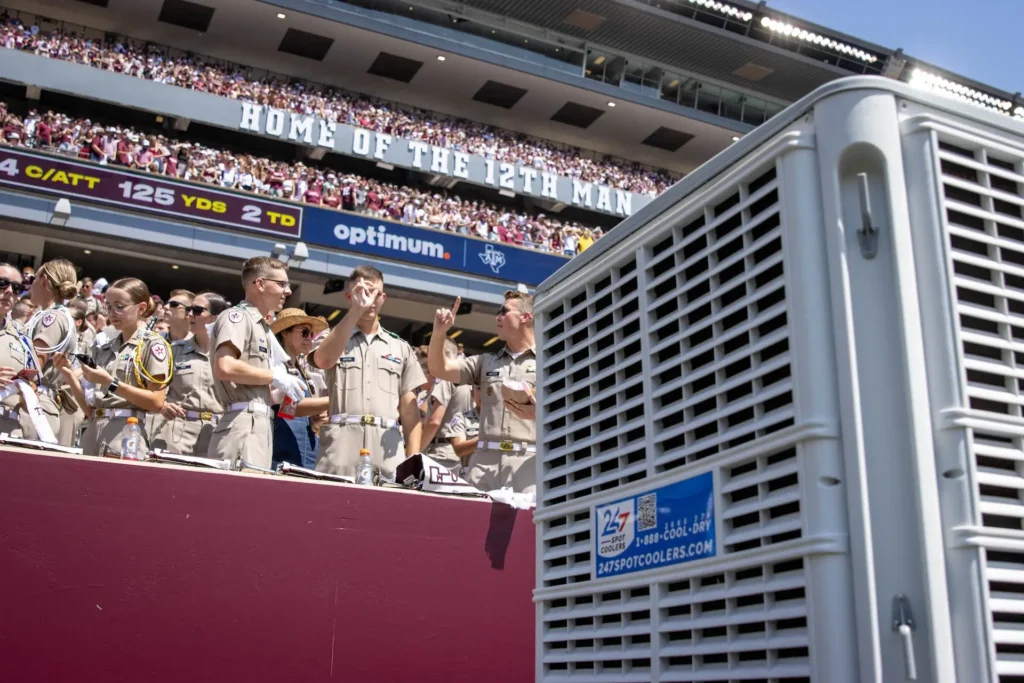
Portable AC units are widely adopted across a range of industries and situations, including:
- Healthcare Facilities: Hospitals and clinics use portable air conditioners to maintain optimal temperatures in patient rooms or operating areas.
- Educational Institutions: Schools can use portable units to supplement HVAC systems during summer sessions.
- Commercial Properties: Offices, restaurants, and warehouses benefit from temporary cooling solutions during peak heat periods or system outages.
- Special Events: Event planners frequently use portable AC units to ensure guests are comfortable in venues where traditional cooling options aren’t feasible.
- IT Centers: Heat-sensitive equipment demands precise cooling that portable units can provide.
Key Takeaways
Portable air conditioners are invaluable for anyone dealing with temporary cooling needs, whether for equipment protection, emergency situations, or guest comfort during an event. By understanding how these systems work, when to use them, and what features to prioritize, you can select the ideal solution for your needs.
Why Choose Portable Air Conditioners?
- Flexibility – Portable units can be moved as needed.
- Ease of Setup – No permanent installation is required.
- Versatility – Suitable for a wide range of spaces and industries.
For cooling solutions that can meet your unique demands, portable air conditioning offers a convenient and efficient option.

